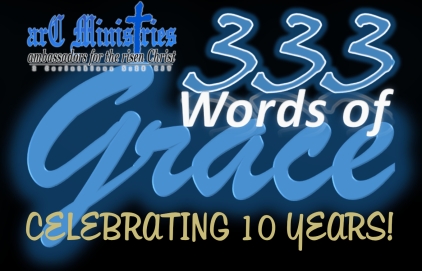Sunday, October 2, 2022
“When he was come down from the mountain, great multitudes followed him. And, behold, there came a leper and worshipped him, saying, Lord, if thou wilt, thou canst make me clean. And Jesus put forth his hand, and touched him, saying, I will; be thou clean. And immediately his leprosy was cleansed. And Jesus saith unto him, See thou tell no man; but go thy way, shew thyself to the priest, and offer the gift that Moses commanded, for a testimony unto them” (Matthew 8:1-4 KJV).
Why is this part of the Holy Scriptures?
Leprosy is an excellent type (picture, portrait, illustration, representation, symbol) of sin for at least five reasons. Both leprosy and sin are: (1) inherent, in the blood, passed down to descendants; (2) destructive and decomposing; (3) unsightly or ugly, invisible yet manifested outwardly via horrific symptoms; (4) man cannot cure; and (5) contagious and worsening. Also, note how both are associated with “the flesh.” When Miriam, Moses’ sister, was stricken with leprosy, the LORD showed how He alone, not man, could heal it (Numbers 12:10-16). Recall Moses’ God-given ability to cure leprosy in Exodus 4:6,7 was the LORD’S word to Israel as to how He would treat her leprosy.
Yet, the most famous leper in Scripture is Naaman, a Gentile or Syrian military leader, as described in 2 Kings 5:1-15. His heathen idols cannot help him. Nevertheless, his wife has a little Jewish servant girl, and this Jewess (a woman of faith) recommends he go down to see the LORD’S prophet Elisha (verses 1-4). Naaman’s king sends him to unbelieving King Jehoram of Israel who reacts most foolishly to the request (verses 5-7). The Prophet Elisha, hearing of Jehoram’s tantrum and Naaman’s infirmity, is willing to meet the leper as God’s representative (verse 8). Naaman is given some strange instructions—wash in the Jordan River seven times—which he reluctantly but eventually obeys and is recovered from leprosy (verses 9-14). He professes his faith in verse 15: “Behold, now I know that there is no God in all the earth, but in Israel.” Israel’s God (notice verse 7) will cleanse even the Gentiles of their spiritual leprosy!
Let us now consider “the gift that Moses commanded….”

